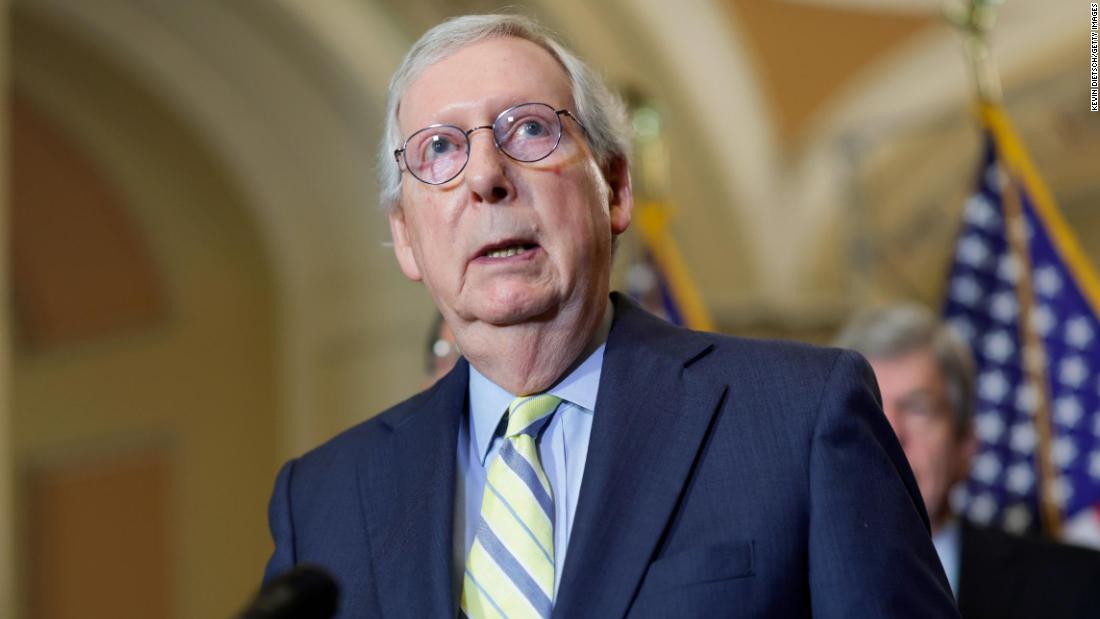Last month, McConnell acknowledged the Republican Party had a better chance of winning control of the House than the Senate, citing the quality of the candidates, some of whom Trump endorsed and Scott played a role in recruiting. "Senate races are just different — they're statewide, candidate quality has a lot to do with the outcome," McConnell
said.
Scott then published
an op-ed in the Washington Examiner last week, slamming members of the GOP who were "trash-talking our Republican candidates." He added, "It's an amazing act of cowardice, and ultimately, it's treasonous to the conservative cause." (Scott later
denied his words were aimed at McConnell.)
Although Scott stands by his candidates, many commentators agree with McConnell, arguing that former President Donald Trump has inserted himself in the midterms and
endorsed several inexperienced and unfit candidates who are now struggling to pull ahead. Mehmet Oz's campaign against Lt. Governor John Fetterman in Pennsylvania is faltering, former football star Herschel Walker is locked in a dead heat with incumbent Sen. Raphael Warnock of Georgia and bestselling author JD Vance has been running
a low-visibility campaign in Ohio.
Scott's spending habits have not been helpful either. Despite
huge hauls early on, the NRSC is now running short on funds due to vast overspending on an effort to find new online donors -- an investment that has
not paid off, according to the New York Times. (The NRSC spokesman defended the strategy and
said "it's working.")
The disagreement that has erupted between Scott and McConnell reveals what drives the Senate minority leader and what might eventually lead to change within the GOP.
McConnell, a master tactician who
criticized Trump during the 2016 campaign, surprised many onlookers by working closely with the former president once he was in the White House. But the truth is that McConnell has always been driven by the pursuit of partisan power, and his more recent decision to break with Trump may be fueled by the growing sense that the former president is a bigger liability than he's worth.
McConnell is part of a generation of Republicans who were shaped by the partisanship that Newt Gingrich famously popularized in the 1980s. The needs of governance and the health of our democratic institutions gradually took a back seat to a no-guardrails approach to partisan warfare. Just about anything was tolerable if the results would help the GOP obtain and maintain political power. What made the approach radical was not that partisan power mattered -- this has always been a part of our nation's politics -- but how far the party was willing to go to achieve this goal.
This was also the story of the Trump presidency. Regardless of what Trump did as president, most Republicans supported him throughout his four years in office -- in large part because he commanded strong support among the red electorate. Even after McConnell delivered a blistering speech condemning Trump's role in the January 6 attack on the US Capitol, he backed off the criticism and
said he would support Trump in 2024 if the former president became the GOP nominee.
But Trump is only useful to McConnell as long as the former president has the ability to deliver the votes for Republicans -- and that is ultimately what underpins the McConnell-Scott conflict. With several Senate seats hanging in the balance in what should have been an easily triumphant year for Republicans, McConnell is likely reconsidering the GOP's strategy going forward.
This is an important moment. Many Americans who believe that democracy is healthier when you have two parties that play by the traditional rules of governance have repeatedly questioned what it will take for Republicans to change.
The answer is clear. It will take a series of major losses that keep Democrats in control of Congress and the White House for Republicans like McConnell to step forward and demand his party take a new approach.
But until it's clear that Trump is a dead weight dragging the GOP down, we won't hear more than an occasional gripe from Republicans like McConnell. And until there is a sense that the entire party must change course, the likely alternative is that we'll see a lot more of politicians like Gov. Rick DeSantis of Florida or Sen. Tom Cotton of Arkansas who embody more polished versions of the former President.

No comments:
Post a Comment